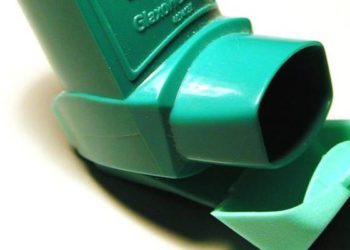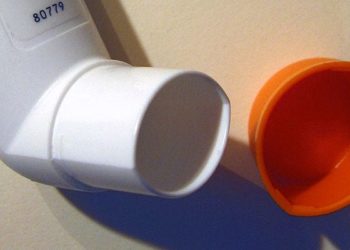Abrocitinib is more effective than dupilumab for treatment of moderate-to-severe atopic dermatitis
1. The co-primary endpoints at weeks 2 and 4 were significantly greater with abrocitinib than dupilumab.
2. Overall incidence of adverse events, such as nausea and acne, were more common with abrocitinib but were mostly mild in severity.
Evidence Rating Level: 1 (Excellent)
Study Rundown: Topical therapy is often considered a first-line option for management of moderate-to-severe atopic dermatitis. However, when topical therapies are not sufficient, systemic therapies are often recommended. Dupilumab, an anti-interleukin [IL]-4 receptor antibody, and abrocitinib, a Janus-kinase [JAK] 1 inhibitor, are two systemic therapies that may play a role in managing atopic dermatitis. However, until now, few studies have compared the relative efficacies of these therapies. This randomized controlled trial aimed to compare the safety and efficacy of abrocitinib versus dupilumab for management of moderate-to-severe dermatitis. The primary outcome was improvement in severity, defined by an improvement of 4 or more points on the Peak Pruritus Numerical Rating Scale (PP-NRS4) at week 2 and 90% or more improvement in Eczema Area and Severity Index (EASI-90) at week 4. According to study results, a greater proportion of patients in the abrocitinib group achieved the primary endpoint compared with dupilumab. Although overall adverse events more common in the abrocitinib group, most events were considered mild in severity. There were no differences in the rate of serious adverse events between groups. A major strength of this study was that it included participants from various countries, including individuals of different race. This adds to the external validity of results.
Click to read the study in The Lancet
Relevant Reading: Abrocitinib versus Placebo or Dupilumab for Atopic Dermatitis
In-depth [randomized-controlled trial]: From Jun 11, 2020, and Dec 16, 2020, 940 patients were screened for eligibility across 151 sites in 15 different countries. Included were patients ≥ 18 years of age with atopic dermatitis for ≥ 6 months and either 1) use of systemic oral therapy in last 12 months or 2) inadequate response to topical therapy within past 6 months. Altogether, 727 patients (362 in abrocitinib group and 365 in dupilumab group) were enrolled. Patients received abrocitinib (200 mg per day) or subcutaneous dupilumab (300 mg every 2 weeks) for total 26 weeks with matching placebos in both groups. The primary outcome of PP-NRS4 at week 2 (48%, 95% confidence interval [CI] 43.0-53.4 vs. 26%, 95% CI 15.8-29.5, p<0.0001) and EASI-90 at week 4 (29%, 95% CI 23.8-33.2 vs. 15%, 95% CI 10.9-18.2), p<0.0001) was significantly greater in the abrocitinib group than in the dupilumab group, respectively. Abrocitinib was associated with more adverse events (268 of 362 patients, 74%) compared to dupilumab (239 of 365, 65%). Notably, mild nausea (19% vs. 2%) and acne or folliculitis (13% vs. 3%) were more common with abrocitinib than dupilumab, respectively. Findings from this study suggest that abrocitinib is more efficacious than dupilumab in adults with moderate-to-severe atopic dermatitis.
Image: PD
©2022 2 Minute Medicine, Inc. All rights reserved. No works may be reproduced without expressed written consent from 2 Minute Medicine, Inc. Inquire about licensing here. No article should be construed as medical advice and is not intended as such by the authors or by 2 Minute Medicine, Inc.




![2MM: AI Roundup- AI Cancer Test, Smarter Hospitals, Faster Drug Discovery, and Mental Health Tech [May 2nd, 2025]](https://www.2minutemedicine.com/wp-content/uploads/2025/05/Untitled-design-350x250.png)




